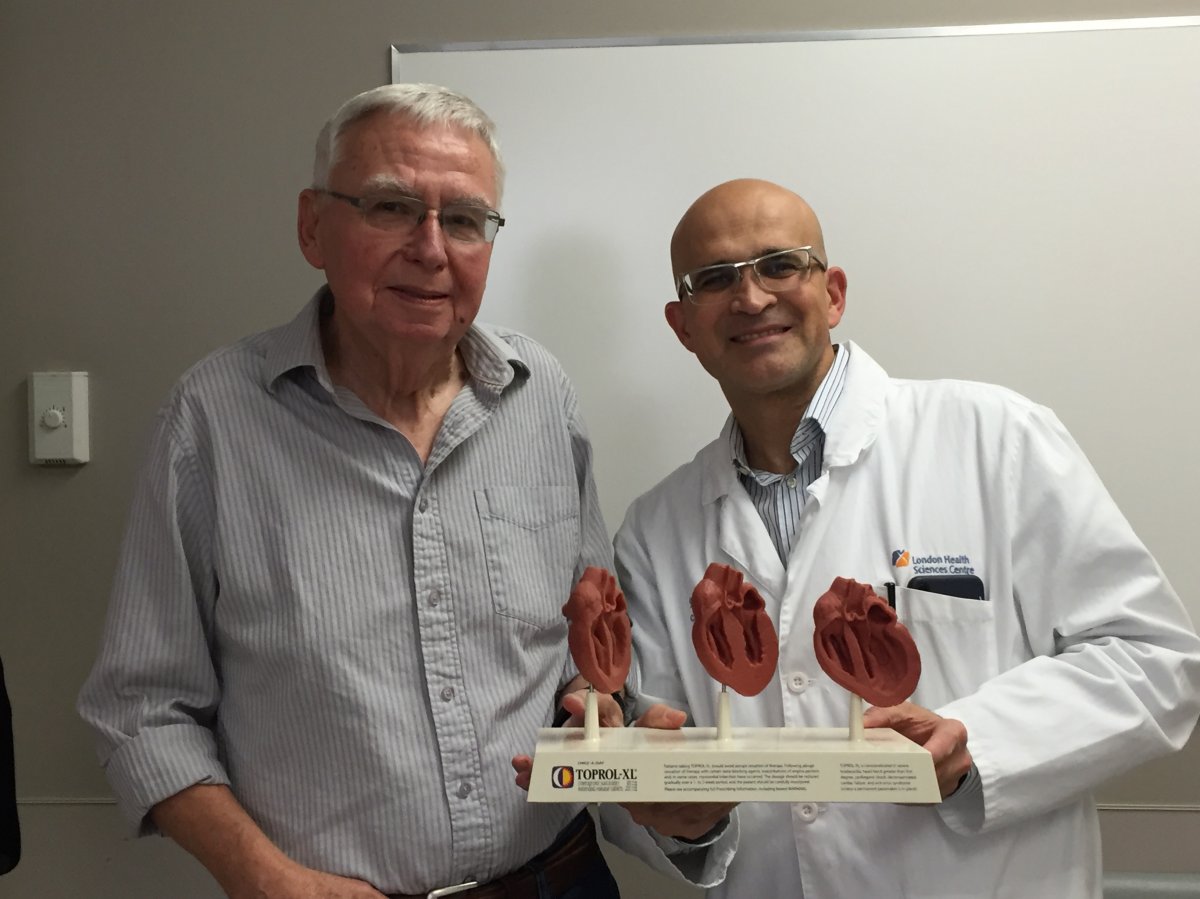The London Health Sciences Centre is breaking new ground in the field of cardiac surgery.

For the first time ever, surgeons at University Hospital performed a robotic aortic valve replacement on a patient suffering from aortic stenosis, which is a narrowing of the aortic valve caused by calcification.
A group of surgeons from around the world came up with the criteria for who would be a good fit for the surgery, and Jim Fuller fit the bill.
“I feel good that my little part that I did could help someone else out,” he said.
Since his valve and chest cavity were both the right size, the hospital was able to use its da Vinci robot to replace the calcified valve with a new tissue one. The procedure was performed back in June.
“I’m back to doing everything that I did before,” said Fuller, 78. “Before surgery, to walk up [the stairs] was very hard to do; I would get short of breath. If I bent over, I would get dizzy, and now all of that is gone away.”
Dr. Bob Kiaii, cardiac surgery chief with the London Health Sciences Centre, said the robot went in between his ribs, so they didn’t have to open his chest cavity. That meant less trauma for the patient, and in turn, a quicker recovery.
Since the surgery is minimally invasive, there’s also a lower risk of complications.
“Surgery is being looked over not only in the discipline of hearts, but all disciplines to be done less invasively,” Dr. Kiaii said, adding that it “has translated to definitely much, you could say, better recovery, potentially less complications, and also for the patients much easier to get back to their regular activities.”
WATCH: Can the latest in new technology help stroke patients regain their mobility?









Comments